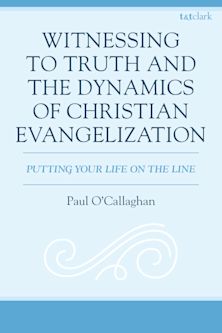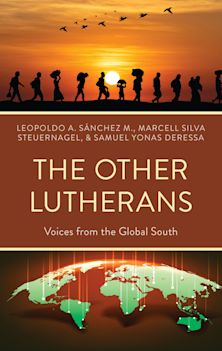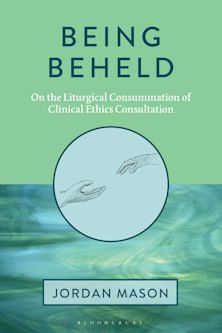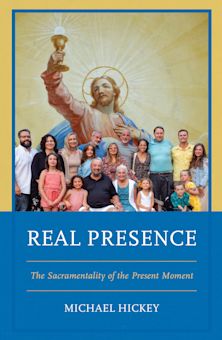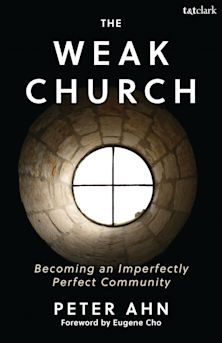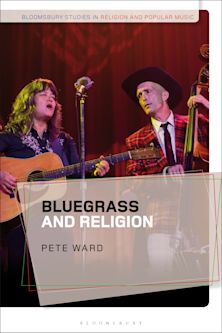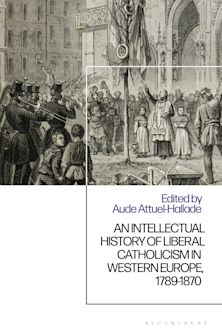- Home
- ACADEMIC
- Religious Studies
- Christianity
- The Call to Happiness
The Call to Happiness
Eudaimonism in English Puritan Thought
The Call to Happiness
Eudaimonism in English Puritan Thought
This product is usually dispatched within 2-4 weeks
- Delivery and returns info
-
Flat rate of $10.00 for shipping anywhere in Australia
You must sign in to add this item to your wishlist. Please sign in or create an account
Description
In The Call to Happiness, Nathaniel A. Warne examines how sixteenth-and seventeenth-century Puritans adopted a eudaimonistic conception of ethics in their writings. He shows how classical eudaimonism within the Puritan context is related to other areas of theology, ethics, and politics, and that the idea of divine calling or vocation fits within Puritan eudaimonism. Warne further shows how work can also be understood as an aspect of human flourishing when illuminated from within this tradition of Christian eudaimonism alongside the doctrine of calling.
Table of Contents
Chapter 2: Nature, Ends, and Happiness
Chapter 3: Reason, Theoria, and Praxis
Chapter 4: A 'Kind of Life': Rationality, Virtue, and Moral Development
Chapter 5: 'Imposed on Man:' Personhood, Command and Calling
Chapter 6: 'Common Good:' Community and the Political
Chapter 7: Community, Friendship, and Law
Chapter 8: Puritan Ethics and a Tradition of Happiness
Product details
| Published | 12 Dec 2019 |
|---|---|
| Format | Hardback |
| Edition | 1st |
| Extent | 268 |
| ISBN | 9781978700246 |
| Imprint | Fortress Academic |
| Dimensions | 229 x 161 mm |
| Publisher | Bloomsbury Publishing |
About the contributors
Reviews
-
Nathaniel A. Warne is that rare thing: a rigorous philosophical theologian who is also deeply humane. This book is about how some of the most impressive people in the Christian tradition have wrestled with what it truly means to be happy — not just in theory, but also in practice. He not only understands the Puritans sympathetically in their own context, but also draws out their lessons for our own age, when the idea of 'happiness' has become so impoverished. Anyone who wants to enrich it again will benefit from reading this book.
Alec Ryrie, Durham University
-
This illuminating book will be a welcome conversation partner for contemporary discussions on flourishing. Nathaniel Warne’s well-researched treatment of the Puritan perspective of happiness carefully integrates their themes of virtue, contemplation, vocation and calling, and friendship that clearly reveals that the partial happiness of this world pales in comparison with its fulfillment in heaven. This insightful book deserves a wide readership!
Tom Schwanda, Wheaton College
-
Few words explain our modern system of value better than happiness. We instinctually trust something as good if it makes us happy. Yet few ideas are more diversely defined and nefariously pursued. Work often becomes the avenue where we seek the happy life at any cost. As a pastor I live in close proximity with the devastation caused by such an ill-fated perspective. After all the tension resides not just in pews but also in my own affections and inclinations. What Warne has done in The Call to Happiness has settled these waters of confusion. Through historical context and deft cultural application, he has done a great good, all the while maintaining a tone of humanity. His words will help any willing to listen to hear the redeeming invitation of God into a life and vocation which are truly happy.
Jason C. Helveston, elder for Teaching and Vision at Church in the Square (Chicago, IL) and author of Tell Me Everything
-
Warne’s A Call to Happiness provides a powerful antidote to the widespread view, stemming from Max Weber, that English Puritan thought inevitably led to the cut-throat individualism and brutal utilitarianism that characterize contemporary capitalism. Drawing on a powerful tradition of eudaimonist thought beginning with Aristotle, a tradition that deeply influenced seventeenth-century English Puritan thinkers, Warne provides a compelling case for reimagining the Puritan pursuit of happiness as inseparable from a commitment to furthering the common good.
Roger Ferlo, president emeritus, Bexley Seabury Seminary
-
In this book, Warne provides a detailed and illuminating account of the relation between eudaimonism and the doctrine of calling in Puritan thought. While giving due weight to seminal contributions, he investigates an impressive selection of authors, identifies and weighs key ancient philosophical and theological influences, and outlines the distinctive contribution a Puritan account of happiness might make in contemporary ethics. For anyone interested in the perennial debate surrounding the puzzle and prospect of human flourishing, this book is an important read.
Robbie Griggs, Covenant Theological Seminary
-
This is an important study, which corrects many misconceptions about the history of Christian ethics. At a time when many are rediscovering the riches of classical ethical perspectives, The Call to Happiness brings the riches of Puritan thought into the discussion as a fruitful conversation partner. And it should encourage those Christian ethicists who have been suspicious of talk about happiness and human flourishing in ethics to take another look. These are their roots as well.
David A. Horner, Talbot School of Theology, Biola University

ONLINE RESOURCES
Bloomsbury Collections
This book is available on Bloomsbury Collections where your library has access.














